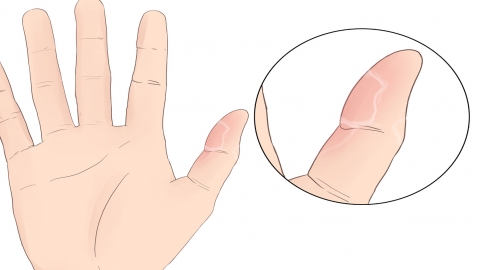What causes trembling and loss of control after bending the thumb?
Generally, the main causes of tremors or loss of control in the thumb after bending include overexertion, mental stress, tenosynovitis, essential tremor, and hyperthyroidism. If discomfort occurs, it is recommended to seek timely medical evaluation and treatment at a正规 hospital. Detailed explanations are as follows:
1. Overexertion
Long-term use of the thumb with excessive force can lead to sustained muscle tension and fatigue. After bending, muscle spasms may trigger trembling. To prevent this, reduce activities that strain the thumb, gently massage the thumb muscles during rest, soak hands in warm water to promote circulation, and avoid prolonged repetition of the same motion.

2. Mental Stress
When experiencing anxiety, the sympathetic nervous system becomes overactive, causing abnormal nerve discharges that control the thumb, resulting in tremors after bending, often accompanied by increased heart rate. Managing emotions through deep breathing, meditation, avoiding excessive anxiety, ensuring adequate sleep, and reducing psychological stress can help alleviate symptoms.
3. Tenosynovitis
Frequent thumb movement causes friction between tendons and tendon sheaths, leading to inflammation. This restricts tendon gliding, causing compensatory muscle tremors when the thumb bends, often accompanied by pain. Under medical guidance, medications such as ibuprofen sustained-release capsules, diclofenac sodium enteric-coated tablets, or celecoxib capsules may be used. Local corticosteroid injections can also be administered; in severe cases, surgical release of the tendon sheath may be required.
4. Essential Tremor
Dysfunction of the nervous system leads to involuntary muscle tremors in the hands, which become more noticeable when the thumb is bent and worsen with emotional excitement. Under medical supervision, medications such as propranolol tablets, atenolol tablets, or primidone tablets may be prescribed. Avoid alcohol and reduce caffeine intake; for severe cases, deep brain stimulation surgery may be considered.
5. Hyperthyroidism
Excessive secretion of thyroid hormones accelerates metabolism and increases neuromuscular excitability, causing thumb tremors after bending, often accompanied by excessive sweating and palpitations. Under medical guidance, medications such as methimazole tablets, propylthiouracil tablets, or propranolol tablets may be taken. In severe cases, subtotal thyroidectomy may be performed, followed by regular monitoring of thyroid function post-surgery.
In daily life, avoid overusing the thumb; maintain emotional stability and avoid mental stress; keep hands warm and prevent exposure to cold; undergo regular physical check-ups to detect abnormalities in the thyroid or nervous system early; and seek prompt medical attention for persistent tremors to identify the underlying cause and receive appropriate treatment.




